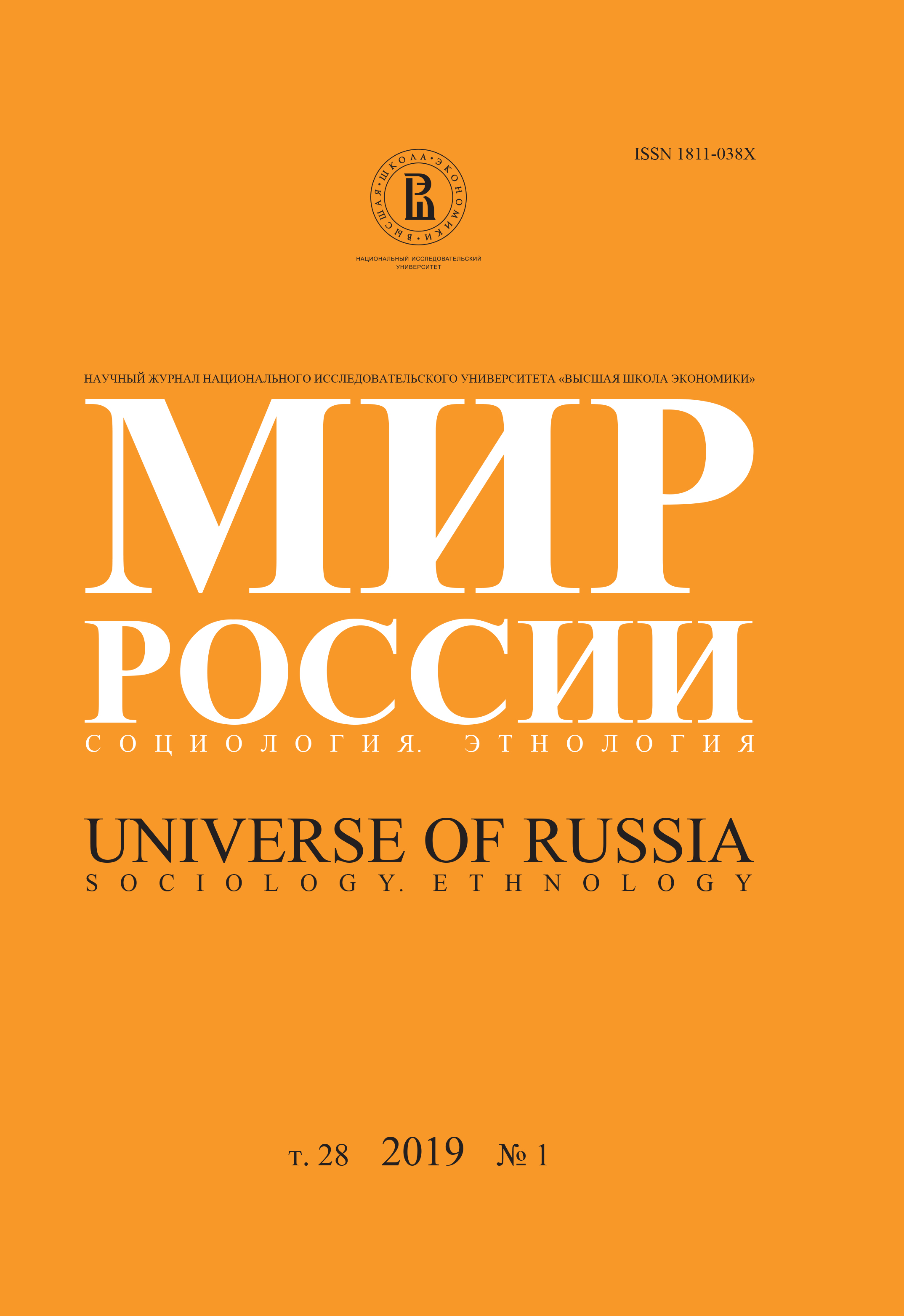Is Sociology for the Working Classes Possible Today?
Abstract
Тat’yana Lytkina – PhD in Sociology, Senior Researcher, Institute of Social-economic and Power Problems of the North. Address: 26, Kommunisticheskaya St., Syktyvkar, 167982,
Russian Federation. E-mail: tlytkina@yandex.ru
Svetlana Yaroshenko – PhD in Sociology, Assistant Professor, Chair of Comparative Sociology, Faculty of Sociology, St. Petersburg State University. Address: 1/3, Smolnogo
St., Saint Petersburg, 191124, Russian Federation. E-mail: svetayaroshenko@gmail.com
Citation: Lytkina Т., Yaroshenko S. (2019) Is Sociology for the Working Classes Possible Today? Mir Rossii, vol. 28, no 1, pp. 101–123 (in Russian). DOI: 10.17323/1811-038X-2019-28-1-101-123
This article scrutinizes the efficiency of the sociology which studies social inequality from the perspective of the working class, i.e. the class that is forced to sell its labor against a backdrop of declining social status. By drawing on the history of sociology, the author examines the significance of the notion of ‘working class’ for the development of sociological science. The thesis is also evaluated in the context of pre-Revolutionary and Soviet sociology, and the author highlights a particular feature of Russian sociology in general, i.e. the confrontation between the state and social researchers. It is argued that that societal evolution could hardly have been possible without sociology and that sociology itself cannot evolve without engagement on behalf of society and without public knowledge about the mechanisms of class formation. Current developments in Russian sociology are defined as involutional with Russian sociologists growing more isolated and too narrowly focused on their concerns and controversies. Their sociology tends to neglect worker interests in spite
of the global search for consensus among various social classes in the context of market globalization. The authors also argue that analyzing social processes from a working
class perspective effectively contributes to diminishing social tensions and can also be useful for the critical assessment of the foundations of sociological knowledge, the reconstruction of outdated theories, and the development of new approaches. They argue for new knowledge about society, which must consider society’s integrality as a system and provide an understanding of how it reproduces or changes its structure through the agency of social groups. Finally, they emphasize the demand for the acknowledgement of different approaches in sociology and the necessity for critical discourse both inside and outside the sociological community. The former is connected directly to the joint efforts of sociologists in advancing inner critique; the latter – with public sociology and the evolution of social classes.






